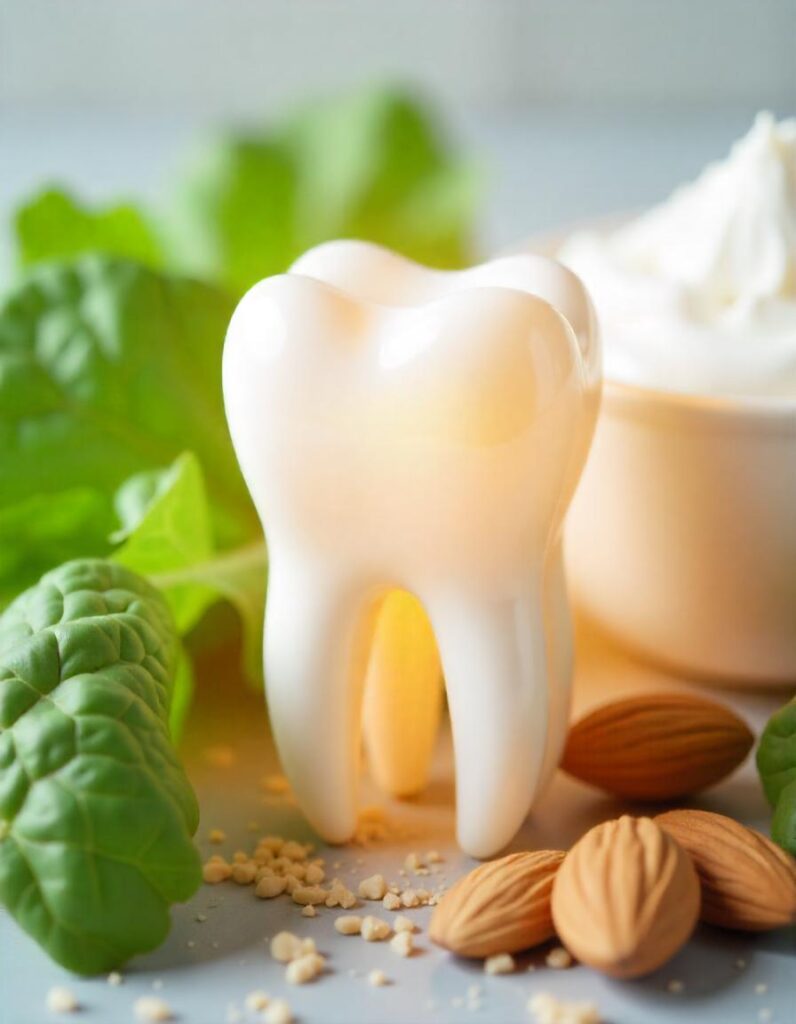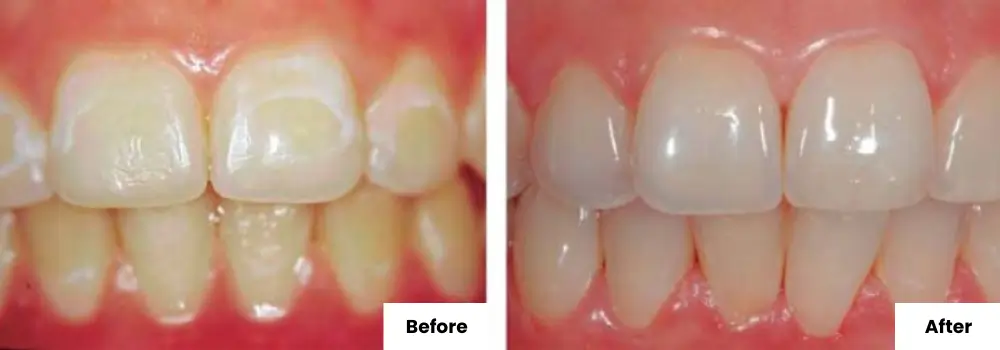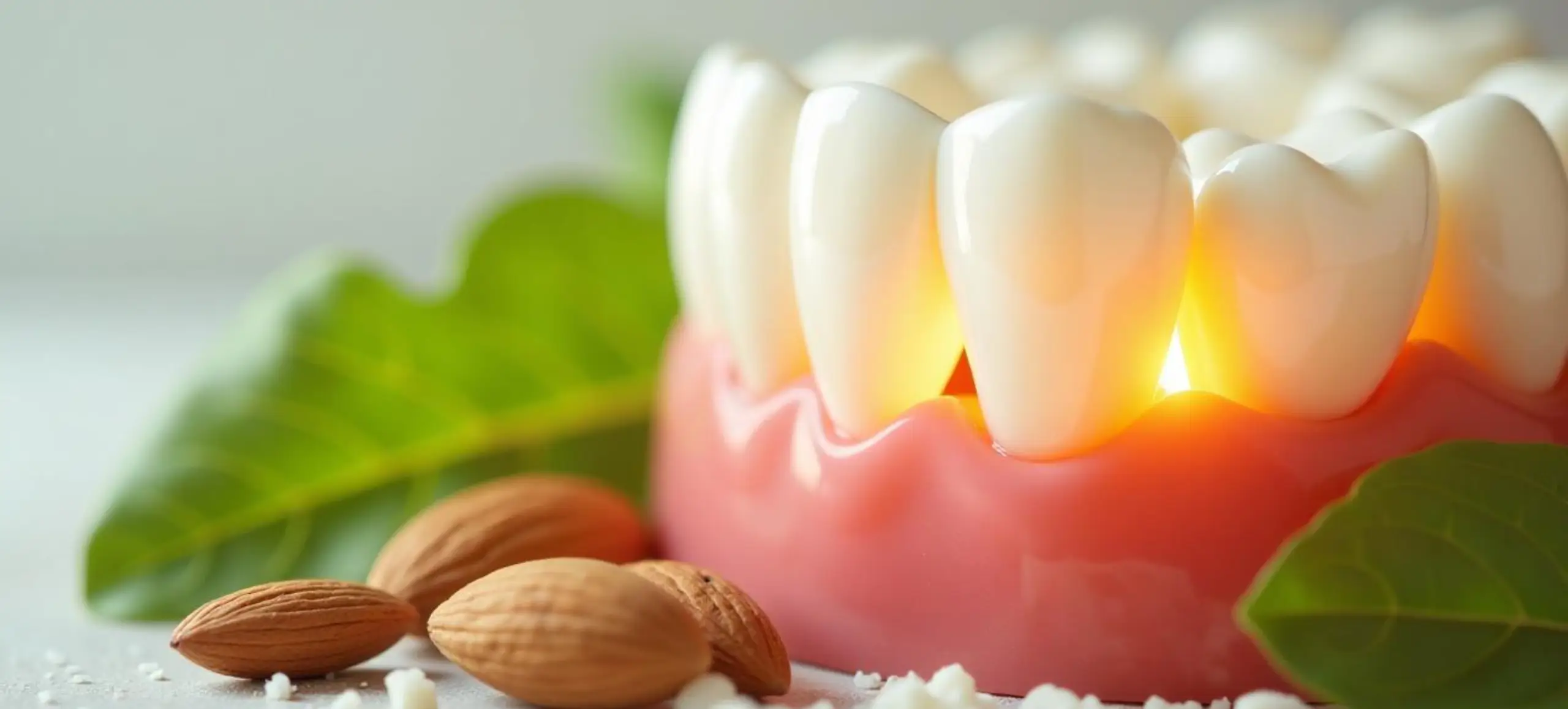Healthy and strong teeth are extremely crucial for oral health. Indeed, among many processes that make your teeth healthy, remineralization is one of the most important. It reverses early damage to a tooth, strengthens your enamel, and even helps prevent cavities. But what is really tooth remineralization? How does it actually happen naturally? So, let’s dig a little deeper.
Summarize This Article On ChatGPT
Table of Contents
What is Tooth Remineralization?

Tooth remineralization is the simple means by which necessary minerals such as calcium and phosphate are receded into the tooth enamel. Enamel, the natural layer that defends the teeth, can be deprived of them due to, among other things, acidic foods, a lack of oral hygiene, and dehydration. The weakening of enamel is what causes teeth to be in danger of tooth decay and cavities.
Remineralization is the natural response by which your body heals damage. It involves several minerals, rebuilding weakened enamel, sometimes able to reverse early stages of decay. However, it should be reminded that this remineralization will heal only superficial damage, and when cavities begin to form, professional dental intervention may already be required.
Remineralization Diet
Diet plays a big role in natural remineralization. Some minerals actually strengthen your teeth and even help mend the enamel on them. If you incorporate such foods into your meals, your body is better equipped to fight off the enamel erosion.
- Calcium-rich foods: Dairy products like milk, cheese, and yogurt are excellent sources of calcium, a key mineral in the remineralization process. Non-dairy alternatives like almonds, kale, and broccoli are also great options.
- Phosphorus-rich foods: Foods such as fish, eggs, and lean meats are high in phosphorus, which works hand-in-hand with calcium to fortify teeth.
- High-water content fruits and vegetables: Celery, apples, and cucumbers stimulate saliva production, which is crucial for balancing pH levels in your mouth and washing away harmful bacteria.
- Foods rich in vitamins: Vitamin D helps your body absorb calcium, and foods like salmon, eggs, and fortified cereals can support this. Vitamin K2, found in meats and fermented foods, also plays a role in transporting calcium to your teeth.
Staying hydrated and avoiding acidic or sugary foods can prevent enamel erosion and give your teeth the best environment for natural remineralization.
Signs of Tooth Remineralization
How do you know if your teeth are undergoing remineralization? While it’s a gradual process, there are some signs that your efforts are working:
- Less tooth sensitivity: Teeth that are sensitive to hot or cold may start to feel less reactive as the enamel strengthens.
- Whitening of enamel: Discolored spots, often caused by demineralization, may begin to fade as minerals are restored.
- Smooth tooth surface: Teeth that were previously rough or pitted may start to feel smoother as the surface rebuilds itself.
While these signs can be subtle, consistent oral care and dietary changes will aid in the natural repair process over time.
Teeth Remineralization Before and After

Many who are actively remineralizing their teeth can see improvement. Sometimes, prior to remineralization, white spots or discoloration, rough texture, and sensitivity are observed on the tooth. After, the enamel appears harder and the surface feels smoother. Severe damage cannot be reversed, but efforts that will be able to make some difference will be of great benefit to those who are showing early signs of demineralization.
Recording how your progress goes can be helpful. Recording improvements over a few months or consulting your dentist about the changes can help really monitor how well you are doing on this road to remineralization.
How to Remineralize Teeth Without Fluoride
Fluoride has long been touted as a primary ingredient for tooth remineralization. However, if you’re looking to remineralize your teeth naturally without fluoride, there are several alternatives:
- Hydroxyapatite toothpaste: This fluoride-free option contains a form of calcium that mimics the minerals in your teeth and aids in strengthening enamel.
- Xylitol: Found in some natural chewing gums, xylitol helps reduce harmful bacteria in the mouth and promotes saliva production.
- Calcium and phosphate supplements: These can help boost your body’s ability to restore lost minerals in the teeth.
Additionally, maintaining proper oral hygiene by brushing with non-fluoride toothpaste and using remineralizing mouthwash can help you achieve strong, healthy teeth without fluoride.
Conclusion
Tooth remineralization is the strong natural process that regenerates your teeth’s strength and integrity. Proper diet, oral care routine, and lifestyle can protect your enamel and ensure that your teeth remain healthy and resilient. Fluoride is recommended to people, but one can definitely remineralize without it; natural ways that induce healing processes in the body. But remember, take early action and stay consistent for best results.
FAQs On Remineralize Teeth
How can I restore my tooth enamel naturally?
You can restore your enamel naturally by incorporating a diet rich in calcium, phosphorus, and vitamins D and K2. Using fluoride-free toothpaste containing hydroxyapatite, avoiding acidic foods, and staying hydrated are also effective strategies.
How long does it take to remineralize teeth naturally?
The time, hence, depends on the extent of damage and consistency in implementing these measures every day. Minor improvements may occur in a few weeks, while more pronounced changes are only possible through continuous care over months.
How to remineralize teeth naturally & reverse tooth decay?
Although early decay can be reversed by emphasizing a diet rich in nutrients, excellent oral hygiene, and remineralizing toothpaste following remineralization, once the cavity has begun to form, only a professional dental treatment can rejuvenate the tooth.
Related Articles:
- 18 Home Remedies For Bad Breath or Halitosis
- The Role of AI in Predicting Oral Health Issues
- What is Infected Tooth Extraction
- What Happens to the Abscess After Tooth Extraction

